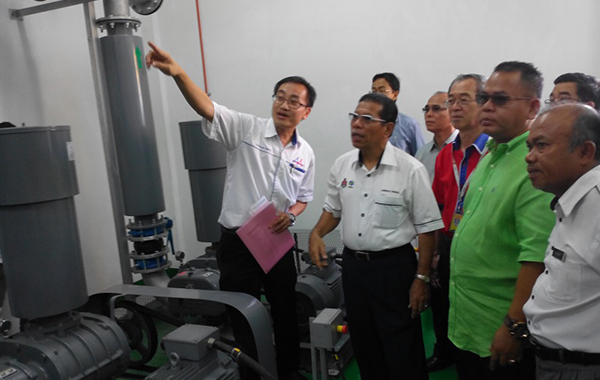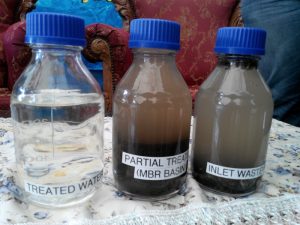(Courtesy from The Malaysian insider)

The six wet markets in the next phase are Pasar Jalan Ipoh, Batu 2 1/2; Pasar Jalan Ipoh Batu 5; Pasar Taman Ikan Mas; Pasar Pekan Sungai Besi; Pasar Salak Selatan and Pasar Jinjang Utara.
Kuala Lumpur mayor Datuk Seri Ahmad Phesal Talib said DBKL was actively looking for the sources of contamination of the 110km strech of the Klang and Gombak rivers and wet markets were among the major culprits.
“There are 28 wet markets in Kuala Lumpur. We started with treating water in five major wet markets last year. After seeing significant improvement in the quality of the treated water, we have decided to build six more plants. These plants are expected to take around one year to be completed,” he said, adding that the implementation of this phase would amount to RM25.5 million.
The waste water treatment plants installation in wet markets around Kuala Lumpur is part of DBKL’s River of Life programme which aims to transform the rivers in the city into a vibrant and liveable waterfronts with high economic value.
The plant, which adopts the Membrane Bio-Reactor technology from South Korea, will help improve water quality from Class V to Class IIB. According to the Interim National Water Quality Standard, water in Class V is not suitable to be used for any purpose, while water in Class IIB can be used for recreational activities and safe to be touched.
Phesal was speaking to reporters after visiting the Pasar Borong Kuala Lumpur treatment plant which started its operation in March.
He said apart from DBKL’s efforts to clean the rivers, it is crucial for business owners to be more responsible when disposing waste.
DBKL, he said, had allocated RM297 million this year just to clean the city and manage waste disposals.
“If business owners could cooperate and manage their waste responsibly, we can save at least half of the cost,” he said.
On another matter, Phesal said, DBKL was working with the Federal Agriculture Marketing Authority (Fama) to set up a special committee to look into the safety of food produce in wet markets.
He said DBKL’s socio-economic development division, which would be in-charge of the committee, would propose a mechanism to run the wet markets systematically.

“Seventy-five per cent of the food we consume comes from wet markets. So, it is important to have a system to control the quality of food items in the market and to register the workers there,” he said.
He said there were cases of traders selling low quality produce that was supposed to be disposed of, to hawkers at a cheaper price.
“Business people would definitely go for cheap vegetables and meat. We, the consumers, are the ones going to consume it. It is unhealthy and unhygienic, so we have to stop this immediately,” he said.
He added that DBKL was mulling the possibility of collecting this low quality produce and turning it into fertilizer.
“We are still thinking of the best way to compensate the traders so that they will cooperate. We are looking at either buying these products from them or compensate them in some other way,” he said.

